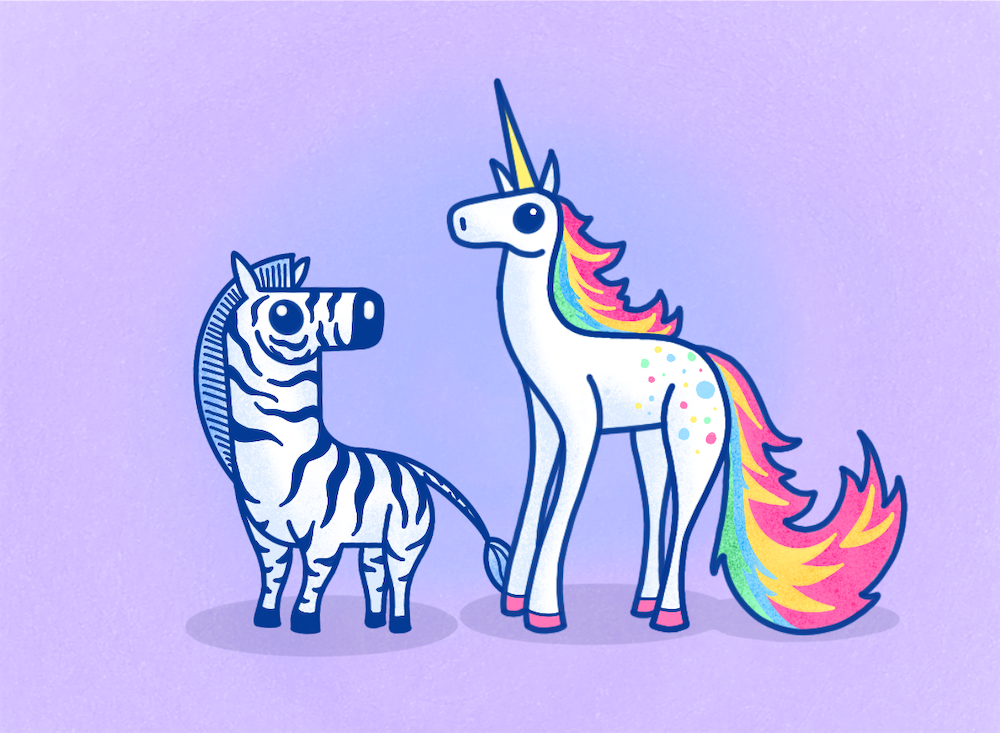We are a zebra!
Starting a business is like putting together your own pizza: you have to choose which ingredients you like and which don't, what you want to integrate and how it combines.
In my case, I had the opportunity to work in different companies, with different versions of the world and business plans. With that accumulated experience, I could easily identify that I did not want to replicate when creating a company.
When devising Matrushka, we created a concept and with it, we realized that we needed a culture, a personality. In the beginning we went to take courses on how to put together a business plan, how to do a start-up, we went through lean methods, canvas techniques, boot camps... things like that, always learning, choosing ingredients for pizza, rejecting others.
There were many things we didn't like about the start-up model: we weren't interested on being listed in the stock exchange; nor did we want to work several years until 4 in the morning with the equity promise, without any profit; we disliked the idea of becoming a vampire company feeding on its users. We wanted a company that would provide satisfaction for its collaborators and clients, we wanted to start every Monday with a smile on our faces.
One day we stumbled upon the Zebras vs. Unicorns vision of Jennifer Brandel, Mara Zepeda, Astrid Scholz and Aniyia Williams. They say that the current model of technology and risk capital structure is broken, since it prioritizes quantity over quality, consumption over creation; it pursues “unicorn” companies (like Facebook and Uber), rather than supporting businesses that repair, cultivate, connect.
They made a manifesto about what a zebra is like and after reading it, in automatic we said: “Yes! That is what we want to be, that is the vision ”. I share below the points that made sense to us and that made us proudly say: We are a zebra!- Unlike unicorns, zebras are real.
- Zebra companies are both black and white: they are profitable and improve society. They won’t sacrifice one for the other.
- Zebras are mutualistic: by banding together in groups, they protect and preserve one another. Their individual input results in stronger collective output.
- Zebra companies are built with peerless stamina and capital efficiency, as long as conditions allow them to survive.
- Zebras are profitable businesses that solve real, meaningful problems and in the process repair existing social systems.
- Zebras prioritize sustainable prosperity while unicorns prioritize exponential growth.
- Unicorns seek to become a monopoly, zebras look for plurality.
- The zebra's method is cooperation, while the unicorn's is competition.
- Zebras care about quality whereas unicorns are concern with quantity.
This is one of the inspirations that have shaped what Matrushka is today, it is the cheese of our pizza. In another blog post I will talk about the sauce, which is Balsamiq and I hope little by little to share all the ingredients to form our secret recipe. Take from it what works for you.
